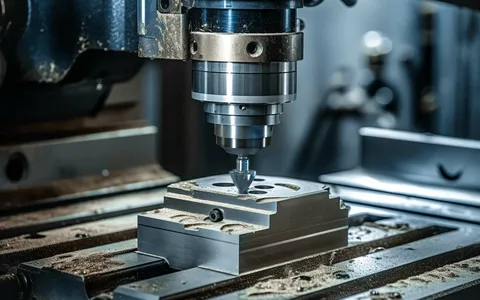CNC machining service has undergone a remarkable transformation since its inception in the mid-20th century. What started as a manual process relying heavily on skilled operators has now evolved into a highly automated and precise system capable of producing complex components with unmatched accuracy. The integration of computer numerical control has not only reduced human error but has also opened the door for mass customization and consistent quality across industries such as aerospace, automotive, medical devices, and electronics. Manufacturers have come to rely on CNC machining service for its efficiency, scalability, and versatility in producing both prototypes and large-scale production runs.
Over the years, CNC machining service has adapted to meet the demands of advanced manufacturing, incorporating new materials, tools, and software. Innovations such as multi-axis machining, high-speed cutting, and improved toolpath algorithms have made the process faster and more reliable. Additionally, the use of computer-aided design (CAD) and computer-aided manufacturing (CAM) software has allowed engineers to design highly complex geometries that can be directly translated into machining instructions. This evolution has laid a solid foundation for the future of CNC machining service, where digital integration and automation will drive even greater levels of precision and efficiency.
The Role of Automation and Robotics in CNC Machining Service
Automation is playing a critical role in shaping the future of CNC machining service. With robotic arms now capable of loading and unloading materials, setting up parts, and even performing secondary processes, the need for human intervention is decreasing. This automation not only enhances efficiency but also reduces labor costs, allowing manufacturers to scale production without compromising quality. The integration of robotics with CNC machining service is especially valuable for industries requiring high-volume production, as it ensures consistency and minimizes downtime.
Furthermore, collaborative robots (cobots) are becoming increasingly popular in modern CNC machining service environments. Unlike traditional robots that operate in isolated spaces, cobots can safely work alongside human operators, making processes more flexible and adaptive. These advancements allow manufacturers to combine the strengths of both human expertise and machine precision. As automation technology continues to evolve, CNC machining service providers will likely see greater adoption of robotic systems, enabling them to meet the growing demand for faster turnaround times and more complex part production.
Integration of Artificial Intelligence and Smart Manufacturing
Artificial intelligence (AI) is revolutionizing the capabilities of CNC machining service by enabling predictive analytics, real-time monitoring, and adaptive machining strategies. Through AI-powered algorithms, machines can analyze tool wear, material properties, and machining conditions to optimize cutting parameters on the fly. This reduces waste, improves tool life, and ensures superior product quality. In advanced manufacturing, the use of AI in CNC machining service represents a significant step toward fully autonomous production systems that can self-correct and learn from data patterns.
In addition to AI, the rise of smart manufacturing and the Industrial Internet of Things (IIoT) is transforming CNC machining service into a more interconnected and data-driven process. Machines can now communicate with one another, share performance data, and provide insights into efficiency and maintenance needs. This connectivity enhances transparency across the production floor and allows manufacturers to make informed decisions based on real-time data. As a result, CNC machining service will not only deliver precision but also enable smarter and more sustainable production models, contributing to the broader vision of Industry 4.0.
Sustainability and Material Innovations in CNC Machining Service
Sustainability is becoming a major focus in advanced manufacturing, and CNC machining service is adapting to meet these environmental challenges. Traditionally, machining processes have been criticized for material waste and high energy consumption. However, modern CNC machining service is increasingly adopting strategies to minimize waste, such as near-net-shape machining, recycling metal chips, and using coolant systems that reduce environmental impact. Additionally, advances in machine design are making CNC systems more energy-efficient, further aligning with global sustainability goals.
Alongside sustainability, material innovation is reshaping CNC machining service. The development of advanced alloys, composites, and lightweight materials requires new machining techniques and tooling solutions. Industries like aerospace and automotive are particularly interested in materials that offer strength without added weight, and CNC machining service must evolve to handle these challenges. New cutting tools with enhanced durability, coatings that reduce friction, and hybrid machining systems are paving the way for CNC machines to work with next-generation materials effectively. These innovations ensure that CNC machining service remains relevant and competitive in the rapidly changing landscape of advanced manufacturing.
The Future Outlook of CNC Machining Service in Advanced Manufacturing
Looking ahead, CNC machining service is poised to play a pivotal role in the future of advanced manufacturing. With the continued adoption of automation, AI, and sustainable practices, CNC machining will become even more precise, efficient, and environmentally friendly. Manufacturers will rely on CNC machining service not just for traditional applications but also for emerging industries such as renewable energy, electric vehicles, and space exploration. The demand for highly complex and custom parts will only increase, pushing CNC technology to new heights of innovation and adaptability.


